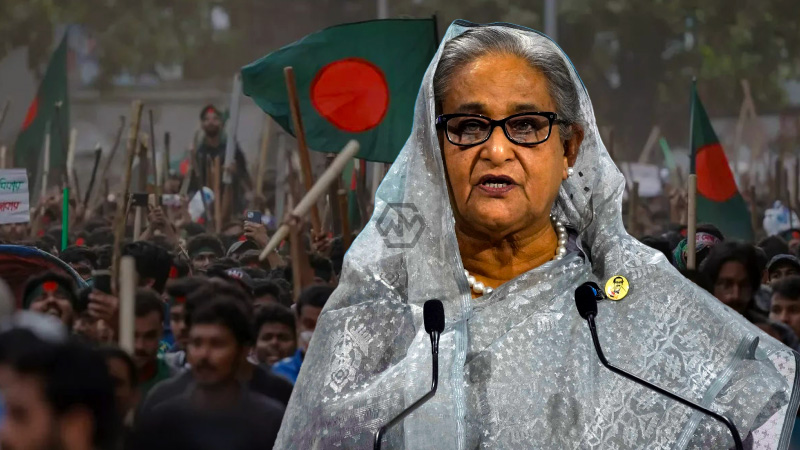- Bangladesh‘s government will formally accept a court ruling lowering job quotas.
- Recent protests turned violent, resulting in nearly 150 deaths.
- Students demand a public apology from Prime Minister Sheikh Hasina and the reopening of university campuses.
In response to days of student protests, the Bangladesh government is expected to formally accept a court ruling that reduces quotas for state jobs. This decision comes after violent protests erupted over the reinstatement of a quota system, which reserved nearly 60 percent of government jobs for certain groups, including families of those who fought in the country’s war of independence.
The Supreme Court‘s recent decision to scrap most of the quotas and Hasina’s approval of this verdict has temporarily calmed the situation in Dhaka and other major cities.
Bangladesh to Implement Court Ruling on Job Quotas Amid Protests
The Bangladesh government is poised to formally accept a court ruling that lowers quotas for state jobs, a key demand of the student protests that have rocked the country. The Supreme Court recently decided to scrap most of the quotas, which had previously reserved nearly 60 percent of government jobs for specific groups. Prime Minister Sheikh Hasina approved the court’s decision on Monday, aiming to defuse the unrest.
The violent protests, which resulted in nearly 150 deaths, began after a high court decision last month reinstated the controversial quota system. The government had previously abolished these quotas in 2018. The unrest prompted the imposition of a curfew and a shutdown of Internet and telecom services to control the situation.
Protesters have issued an ultimatum, giving the government 48 hours to meet eight demands, including a public apology from Hasina and the reopening of university campuses that were closed when the violence began. Hasina has blamed her political opponents for inciting the violence and stated that the curfew will be lifted once the situation improves.
In response to the turmoil, Malaysia and India have evacuated their citizens from Bangladesh. Malaysia’s foreign ministry arranged a flight expected to arrive in Kuala Lumpur, while India reported that over 4,500 Indian students have returned home. The government’s formal acceptance of the court ruling is expected to be published on Tuesday, aligning with the protesters’ demands.
The formal acceptance of the court ruling by the Bangladesh government is a significant step towards addressing the protesters’ demands and restoring order in the country. However, the situation remains delicate as the government works to meet other demands and ensure long-term stability.
“The protestors have given the government 48 hours to meet 8 demands, which include a public apology from Hasina and the reopening of the university campuses that were shut when the violence began.”



